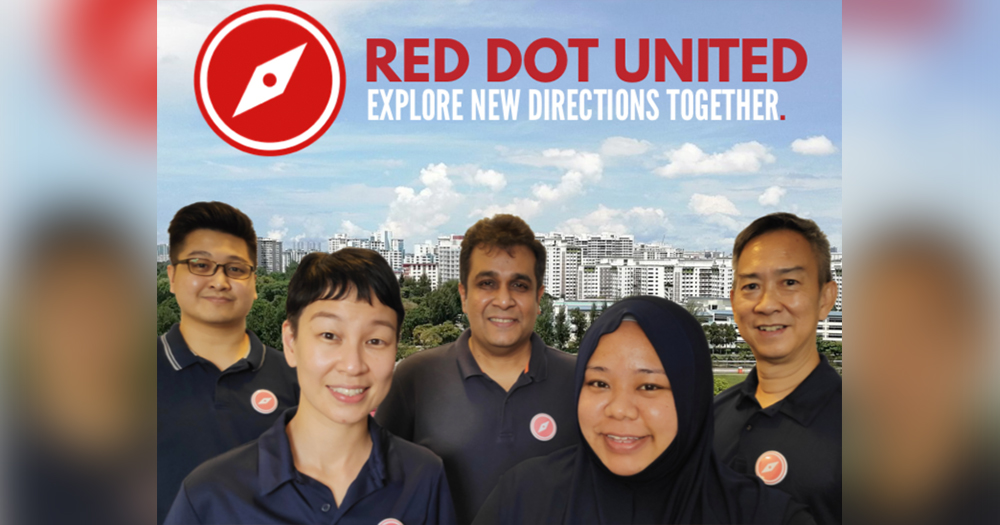Red Dot United (RDU) has released their manifesto — or charter as they call — to help Singaporeans become the "captains of their own lives".
Singapore's newest political party intends to contest Jurong GRC against a PAP team led by Senior Minister Tharman Shanmugaratnam.
Its 12-page manifesto included policies that RDU believes will help Singaporeans:
- Improve their lives and reduce anixety
- Create more options
- Be ready for the future
The full document can be found on RDU's website, but we've taken the liberty to summarise the five key takeaways.
1) Jobs for Singaporeans
RDU's manifesto called for an enquiry into foreign employment in Singapore.
This included a review of free trade agreements like the Comprehensive Economic Cooperation Agreement (CECA) between Singapore and India, and assessing the employment pass system.
The party also plans to ensure a "Singaporean First hiring policy" which will involve a reevaluation of the Fair Consideration Framework and introducing a scheme that will reward human resource managers with a "good compliance track record for prioritising jobs for Singaporeans".
Finally, RDU promised to reserve some jobs for Singaporeans in selected future growth sectors.
This, they wrote, would enable "capability transfers" and "grow local expertise".
2) Housing: protecting prices, lowering singles buying age
Regarding housing, RDU has 3 policy proposals.
The first is to make En-bloc Redevelopment Programmes mandatory, as a means of easing concerns about lease decay and the value of HDB flats.
The second is lower the age the single Singaporeans can buy flats to 30 years old, while also allowing singles to buy bigger three-room or smaller built-to-order (BTO) flats.
Lastly, RDU wants to price new flats at "multiples of median income and location factor".
"For example, four-room flats may be pegged at three years of median income, times a location factor and for smaller flats, they can be pegged at three years of income at a lower percentile level," said the party in response to queries from Mothership.
"This will ensure affordability and as income levels of Singaporeans change through the years, government revenue from flat sales would also rise."
3) Lowering cost of living, increasing middle-income wages
RDU's stance on the Goods and Service Tax (GST) is to halt any increase for the next five years.
They have also called for policymakers to put a greater focus on growing Singaporean's wages.
According to RDU, Singapore's wage distribution politics have been skewed towards better educated top earners.
One of the causes behind this, posited the party, was that government ministers have pegged their salaries to 60 per cent of the median income of the top 1,000 earners.
"To incentivise the Government to grow the wage shares in Singapore to match that of other first world nations, Ministerial salaries should be pegged to multiples of the median gross monthly income from work," wrote RDU.
4) Increasing the fertility rate
In order to increase Singapore's birthrate, RDU has proposed incentives for workplaces to develop family-friendly policies.
"These could be in the form of tax rebates, reliefs, priorities for leases and/or work permits or even awards."
For parents who choose to stay home in order to care for their children, RDU called on the government to give such parents "recognition" in the form of CPF contributions.
In addition, the party suggested that infant care and childcare subsidies currently available only to working mothers, should be extended to all parents.
5) Climate Change
RDU's policies regarding climate change include investing and incentivising the switch to clean energy.
The party suggested that the government could collaborate with other countries in the region to bring solar and wind power to Singapore.
There was also a call to scale back deforestation in Singapore while increasing the pace of tree replanting.
The tree-planting programme, said RDU, should be sufficient to counter the effects of rapid deforestation.
Related stories:
Top image from RDU
If you like what you read, follow us on Facebook, Instagram, Twitter and Telegram to get the latest updates.
